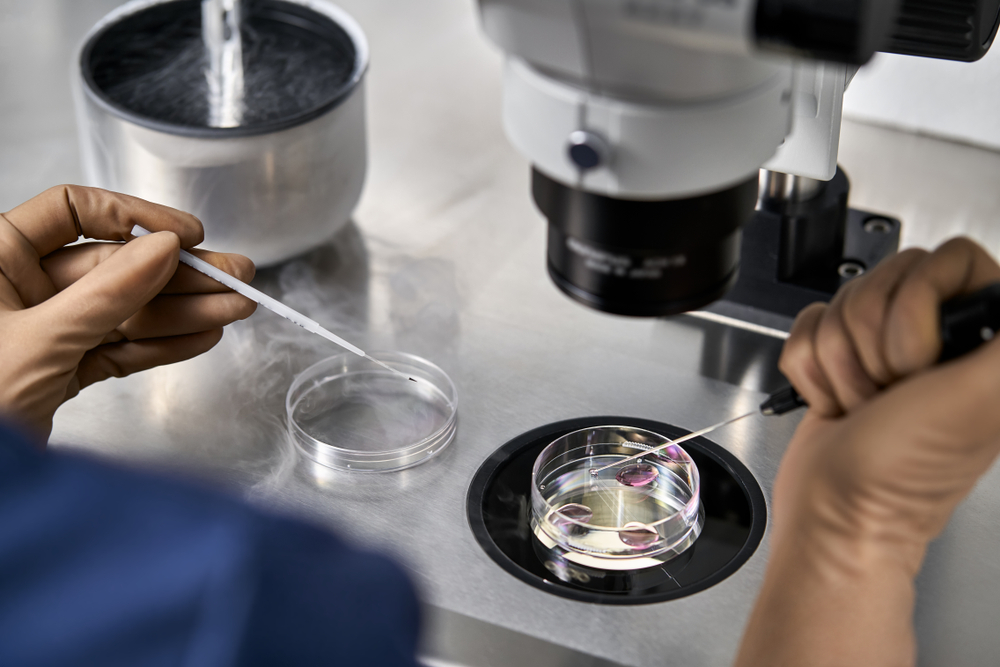In recent years, advancements in reproductive medicine have given individuals more control over their fertility. One such advancement is egg freezing, a procedure that allows people to preserve their eggs for future use. Whether it’s due to career pursuits, health concerns, or personal choice, egg freezing has become a viable option for those who wish to delay parenthood. But have you ever wondered about the science behind this innovative technology?
Understanding the Basics: Oogenesis and Egg Development
To comprehend the science of egg freezing, it’s crucial to grasp the fundamentals of egg development within the female reproductive system. In women, the process of egg development is known as oogenesis and begins long before a person is born. Female foetuses have all the eggs they will ever have, with the number steadily decreasing as they age. By the time a woman reaches puberty, she typically has around 300,000 to 400,000 eggs remaining.
Each month, during the menstrual cycle, a group of immature eggs is stimulated to grow and develop in small fluid-filled sacs called follicles. Eventually, one dominant egg is selected for ovulation, while the others diminish. This is the egg that has the potential to be fertilised and result in pregnancy.
The Science of Egg Freezing: Cryopreservation
Egg freezing, technically known as oocyte cryopreservation, is the process of preserving a woman’s eggs at a specific point in time. The aim is to halt the natural aging process of eggs and keep them viable for future use. Here’s how it works:
Ovarian Stimulation: To begin the egg freezing process, a woman undergoes controlled ovarian stimulation. This involves taking hormonal medications, such as follicle-stimulating hormone (FSH) and luteinising hormone (LH), to stimulate multiple follicles to develop simultaneously. This step typically lasts around 10-14 days and is closely monitored with ultrasounds and blood tests.
Egg Retrieval: Once the follicles are mature, a minor surgical procedure called egg retrieval is performed. A thin needle is inserted through the vaginal wall and into the ovaries to extract the eggs from the follicles. These eggs are then collected and prepared for cryopreservation.
Cryopreservation: The collected eggs are quickly cooled and frozen using a process called vitrification. During vitrification, the eggs are exposed to a cryoprotectant solution, which helps prevent ice crystal formation. This is crucial because ice crystals can damage the delicate structure of the egg. The eggs are then rapidly frozen in liquid nitrogen, preserving them until the patient is ready to become a parent.
Storage: The frozen eggs are stored in cryogenic tanks at a temperature of around -196 degrees Celsius (-320 degrees Fahrenheit). They can be kept in storage for many years without significant deterioration.
The Role of Egg Freezing in Fertility Preservation
Egg freezing has revolutionised fertility preservation. It offers numerous benefits, such as allowing individuals to delay childbearing without worrying about the natural decline in egg quality and quantity that comes with age. It also provides options for people facing medical treatments, such as chemotherapy or radiation therapy, which can harm fertility. Additionally, egg freezing can be empowering for those who want to prioritise their careers, relationships, or personal growth before starting a family.
It’s important to note that egg freezing success rates vary, and not all frozen eggs will result in a successful pregnancy. The age at which the eggs were frozen, the woman’s overall health, and the quality of the eggs all play significant roles in determining the likelihood of a successful pregnancy when using frozen eggs.
In conclusion, egg freezing is a remarkable scientific advancement that empowers individuals to take control of their reproductive futures. By preserving their eggs through cryopreservation, people can make informed choices about when and if they want to have children. This technology offers hope and flexibility to those who may have faced fertility challenges in the past, making it an exciting field of exploration in the world of reproductive medicine.

